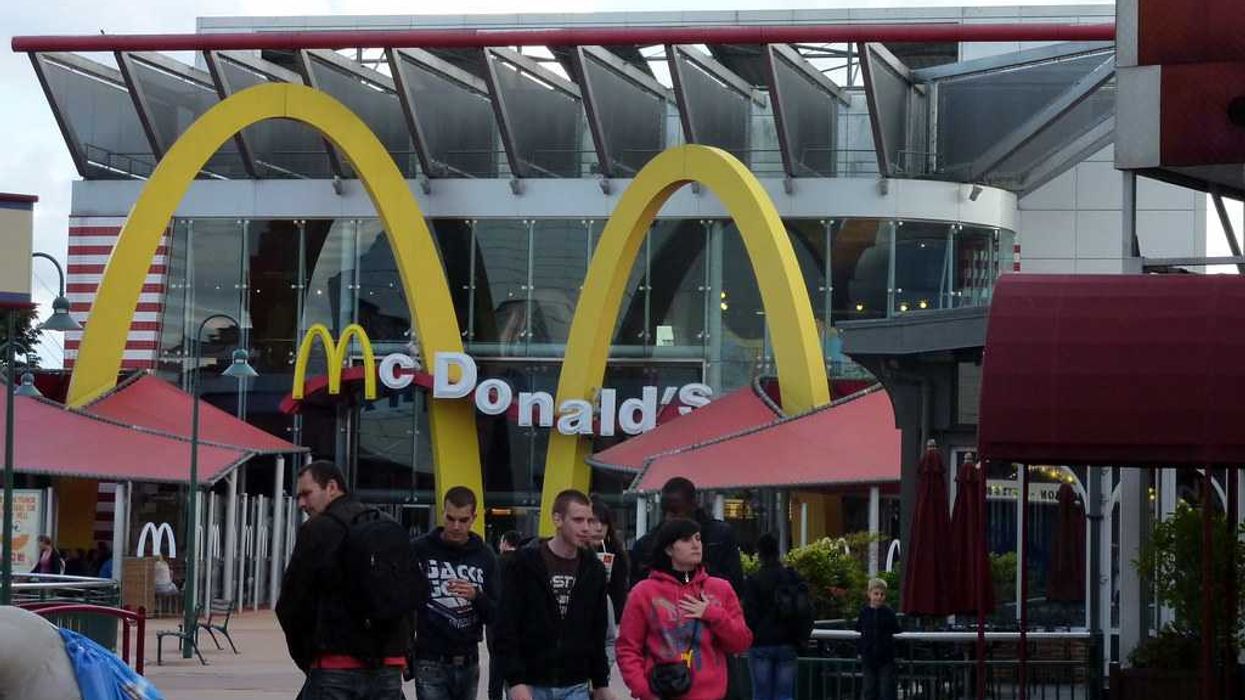McDonald’s low-income customer base drops by double digits in Trump economy


Editor's Note: The headline has been updated for clarity.
Prices have risen so high at fast food landmark McDonald's under President Donald Trump's leadership that " traffic from one of its core customer bases, low-income households, has dropped by double digits," reports the LA Times.
"The struggle of the Golden Arches — long synonymous with cheap food for the masses — reflects a larger trend upending the consumer economy and making 'affordability' a hot policy topic," writes Suhauna Hussein.
Executives of the fast-food chain say "the higher costs of restaurant essentials, such as beef and salaries, have pushed food prices up and driven away lower-income customers who are already being squeezed by the rising cost of groceries, clothes, rent and child care."
Analyst Adam Josephson says that prices are rising everywhere—especially at McDonald's.
"Happy Meals at McDonald’s are prohibitively expensive for some people, because there’s been so much inflation,” Josephson says.
Josephson and other economists point to Trump's K-shaped economy as the reason for shrinking traffic of low-income consumers.
Meanwhile, all is well for companies catering to higher-income consumers, like Delta Airlines, where data shows that while their main cabin revenue fell 5 percent for the June quarter compared to a year ago, premium ticket sales rose 5 percent, "highlighting the divide between affluent customers and those forced to be more economical," Hussein writes.
The same is happening with luxury brand hotels, where "revenue at brands including Four Seasons, Ritz-Carlton and St. Regis is up 2.9 percent so far this year, while economy hotels saw a 3.1 percent decline for the same period, according to industry tracker CoStar."
“There are examples everywhere you look,” Josephson says.
Consumer credit deliquency rates, Hussein explains, show how badly low-income households are suffering under Trump.
"Households making less than $45,000 annually are seeing 'huge year-over-year increases,' even as delinquency rates for high- and middle-income households have flattened and stabilized," says Rikard Bandebo, chief strategy officer and chief economist at VantageScore.
As rents have increased, the amount families have left over after paying for housing and utilities has fallen to record lows, Hussein notes.
“It’s getting tougher and tougher every month for low-income households to make ends meet,” Bandebo says.
Prices at fast-food restaurants are skyrocketing, too, up 3.2 percent year over year, at a rate higher than inflation “and that’s climbing” according to Marisa DiNatale, an economist at Moody’s Analytics.
“It has always been the case that more well-off people have done better. But a lot of the economic and policy headwinds are disproportionately affecting lower-income households, and [McDonald’s losing low-income customers] is a reflection of that,” DiNatale says.
McDonald's has previously offered budget meals, and tried doing so last year, with a $5 deal for a McDouble or McChicken sandwich, small fries, small soft drink and four-piece McNuggets.
In January it offered a $1 menu item alongside an item bought for full price, and launched Extra Value Meals in early September, but, Hussein writes, it didn't "immediately cut through to customers."
DiNatale says companies are weary of passing along higher costs to customers, saying, "A lot of businesses are saying, we just don’t think consumers will stand for this. [Consumers] have been through years of higher prices, and there’s just very little tolerance for higher prices going forward.